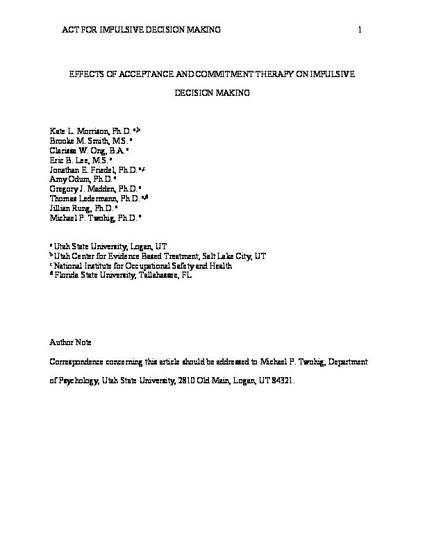
This study examined the transdiagnostic effect of acceptance and commitment therapy (ACT) on impulsive decision making in a community sample. Forty adults were randomized to eight individual sessions of ACT or an inactive control. Participants completed pre-, mid-, and post-assessments for psychological symptoms, overall behavior change, valued living, delay discounting, psychological flexibility, and distress tolerance. Data were analyzed with multilevel modeling of growth curves. Significant interaction effects of time and condition were observed for psychological flexibility, distress tolerance, psychological symptoms, and the obstruction subscale of valued living. No significant interaction effect was found for two delay discounting tasks nor the progress subscale of valued living. The ACT condition had a significantly larger reduction of problem behavior at post-assessment. The results support use of ACT as a transdiagnostic treatment for impulsive behaviors. The lack of change in delay discounting contrasts previous research.
